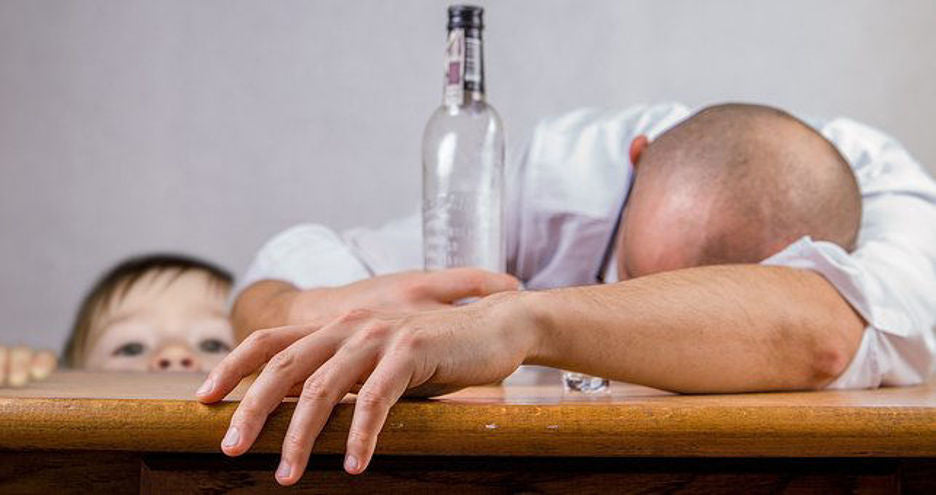There are so many perspectives and beliefs when it comes to addiction: some true, some false.
Separating myth from reality is not an easy task. Myth is, in fact, a reality for many people; to suggest that another reality exists is to turn their world upside down.
But if the truth about alcoholism is ever to be understood, the myths must be attacked and destroyed. Only facts can destroy myths. And here are the facts:
Myth: Alcohol is predominantly a sedative or depressant drug.
Reality: Alcohol’s pharmacological effects change with the amount drunk. In small quantities, alcohol is a stimulant. In large doses, alcohol acts as a sedative. In all amounts, however, alcohol provides a rich and potent source of calories and energy.
Myth: Alcohol has the same chemical and physiological effect on everyone who drinks.
Reality: Alcohol, like every other food we take into our bodies, affects different people differently.
Myth: Alcohol is an addictive drug, and anyone who drinks long and hard enough will become addicted.
Reality: Alcohol is a selectively addictive drug; it is addictive for only a minority of its users, namely alcoholics. Most people can occasionally drink, daily, even heavily, without becoming addicted to alcohol. Others (alcoholics) will become addicted no matter how much they drink.

Myth: Alcohol is harmful and poisonous to the alcoholic
Reality: Alcohol is a normalizing agent and the best medicine for the pain it creates, giving the alcoholic energy, stimulation, and relief from the pain of withdrawal. Its harmful and poisonous aftereffects are most evident when the alcoholic stops drinking.
Myth: Alcohol addiction is often psychological.
Reality: Alcohol addiction is primarily physiological. Alcoholics become addicted because their bodies are physiologically incapable of processing alcohol normally.
Myth: People become alcoholics because they have psychological or emotional problems, which they try to relieve by drinking (the Devdas syndrome).
Reality: Alcoholics have the same psychological and emotional problems as everyone else before they start drinking. These problems are aggravated, however, by their addiction to alcohol or drugs. Alcoholism undermines and weakens the alcoholic’s ability to cope with the normal problems of living. Furthermore, the alcoholic’s emotions become inflamed both when he drinks excessively and when he stops drinking. Thus, when he is drinking and when he is abstinent, he will feel angry, fearful and depressed in excessive degrees.
Myth: All sorts of social problems – marriage problems, a death in the family, job stress, ‘wrong company’ – may cause alcoholism.
Reality: As with psychological and emotional problems, alcoholics experience all the social pressures everyone else does, but the disease undermines their ability to cope, and the problems get worse. Alcoholics have a genetic and biochemical predisposition and will likely be attracted to such situations and people who also indulge in addictive behaviours.

Myth: When the alcoholic is drinking, he reveals his true personality.
Reality: Alcohol’s effect on the brain causes severe psychological and emotional distortions of the normal personality. Sobriety reveals the alcoholic’s true character.
Myth: The fact that alcoholics often continue to be depressed, anxious, irritable, and unhappy after they stop drinking is evidence that psychological problems cause their disease.
Reality: Alcoholics who continue to be depressed, anxious, irritable and unhappy after they stop drinking suffer from a phenomenon called the “post-acute withdrawal syndrome.” The physical damage caused by years of excessive drinking has not been completely reversed; they are, in fact, still sick and in need of more effective therapy.
Myth: If people could only drink responsibly, they would not become alcoholics.
Reality: Many responsible drinkers become alcoholics. Then, because it is the nature of the disease (not the person), they begin to drink irresponsibly.
Myth: An alcoholic has to want help to be helped.
Reality: Most drinking alcoholics do not want to be helped. They are sick, unable to think rationally, and incapable of giving up alcohol by themselves. Most recovered alcoholics were forced into treatment against their will. Self-motivation usually occurs during treatment, not before.
Myth: Some alcoholics can learn to drink normally and can continue to drink with no ill effects as they limit the amount.
Reality: Alcoholics can never safely return to drinking because drinking in any amount will sooner or later reactivate their addiction.
Myth: Craving for alcohol can be offset by eating high sugar foods.
Reality: Foods with a high sugar content will increase the alcoholic’s depression, irritability, and tension and intensify their desire for a drink to relieve these symptoms.
Myth: if alcoholics eat three balanced meals a day, their nutritional problems will eventually correct themselves.
Reality: Alcoholics’ nutritional needs are only partially met by a balanced diet. They also need vitamin and mineral supplements to correct any deficiencies and to maintain healthy balances.
Myth: Tranquilizers and sedatives are sometimes helpful in treating alcoholics.
Reality: Tranquilizers and sedatives are useful only during the acute withdrawal period. Beyond that, these substitute drugs are destructive and, in many cases, deadly for alcoholics.
Many alcoholics start to mix these with alcohol or switch to these drugs as a substitution addiction.

